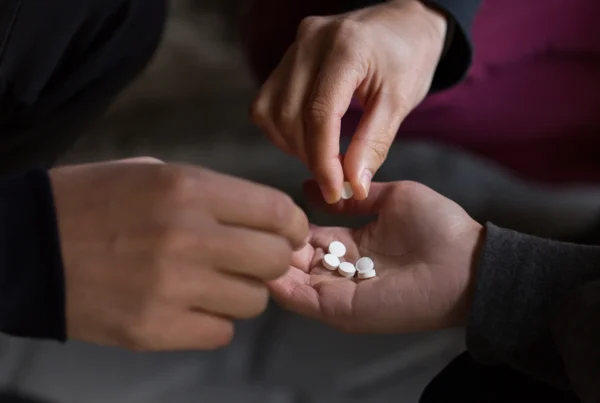
Table of Contents
Essential to Long Term Success
Looking over old blogs, I noticed that I’ve mentioned sober support networks in quite a few of them. However, I also realized that I’ve never written an entire blog on their significance, and that’s a wrong I need to right immediately. Of course, building and maintaining a strong sober support network is essential to long-term recovery success. But what exactly does a support network entail? And how do we go about building one?
What Is a Sober Support Network?
A basic working definition of a sober support network is simply a group of people in your life who are willing and ready to help you recover. Because of the nature and recovery needs, this network will evolve as people move in and out. For example, while you may maintain a working relationship with one of the therapists you meet in treatment, it’s not likely that this will be the case with most of them. Another example is that while many family members and friends would love to see you sober and happy, it may take some time to be ready to trust and help you, particularly if they dealt with you frequently while you were in active addiction. Finally, all the peers you meet in treatment or at meetings are going through their struggles and might not always be there to help.
Put Your Hand Out
With all of this constant flux, how does one build and maintain something solid? Honest effort and patience. Start by surrounding yourself with people who take sobriety seriously. Make an effort to put your hand out at meetings and introduce yourself. Look for the people who have some time and consider finding a sponsor. Exchange phone numbers and make some check-in calls or texts. That way, if a craving or a rough situation arises, the phone won’t be quite so heavy. Steer clear of the folks playing on their phones throughout the meeting or blowing off curfew at the sober living home. These people might be fun to hang out with, but they aren’t going to help you stay sober.
Patience and Understanding
When it comes to family members and friends who were around during the bad old days, some patience and understanding will go a long way. Dealing with an addict in the throes of their addiction is exhausting for everyone. The people that helped you through that time could use a rest. Furthermore, there are likely trust issues and raw feelings due to those times. You’re probably riding that “pink cloud,” ready to solve all your problems simultaneously. However, it’s best to take a breath and let your loved ones work at their own pace.
Treatment and Aftercare
Residential addiction treatment is designed to take you out of the life you were living in active addiction. It gets you onboard with a new way of thinking. Treatment can take 30, 60, or 90 days, sometimes even longer. It is not, however, a long-term solution. Sooner or later, the time comes to discharge from the facility and put your new skills to work. This is why a good recovery center will start to devise an aftercare plan as part of your treatment. This plan will likely include a referral to a new therapist close to home to work with deep-rooted problems and new issues that may arise, ensuring a seamless transition. If the struggle of addiction has become too much for you and you are seeking a rehab facility, consider giving Ocean Recovery a call today. We will help you build a strong sober support network and a foundation for hope.
Was this article helpful? Follow our blog for more information about substance use, addiction, and recovery. Recent posts include topics such as the what to expect when withdrawing from meth and neuroplasticity exercises to help treat addiction.
Ocean Recovery has strict sourcing guidelines and relies on peer-reviewed studies, academic research institutions, and medical associations for our references. We avoid using tertiary references as our sources. You can learn more about how we source our references by reading our editorial policy.
OCEAN RECOVERY EDITORIAL GUIDELINES
The internet contains a vast amount of misinformation, but when it comes to your health only peer reviewed, research centered data matters. At Ocean Recovery, all content published throughout our website has been rigorously medically reviewed by a doctorate level clinician, and cross checked for medical accuracy. Our editorial process helps our readers trust that the information they are consuming is factual and based upon scientific data. Your health is our top priority, find out more about how we safeguard the integrity of information on our website. Read More About Our Process




